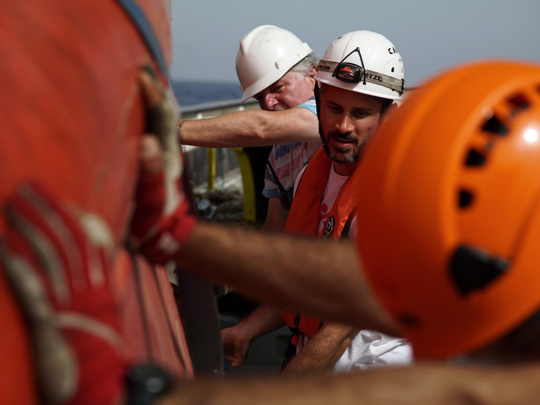
This article isn’t about war. It isn’t really about treatment either. It’s about a connection between strangers.
I recently visited hospital for victims of war. To be exact, a reconstructive surgical hospital run by Medecins Sans Frontieres (MSF) in Amman. People who have been wounded in conflict and unrest are brought there from across the region. Patients from Iraq, Syria, Yemen, Palestine, Egypt and Libya are treated here. Their treatment does not depend on age, gender or political leaning. Everyone there is an equal, afforded the dignity a patient deserves.
Visiting this place, I was struck not by the differences in people and nationalities there, but by their similarities. Patients there often undergo multiple complex surgical procedures, long courses of physiotherapy and psychological health-care treatment with the aim of restoring function and ability to bodies and lives. All the patients there have complicated injuries and many need to stay for a long time in order to recover. But aside from their treatment, they have something else in common — a desire to get better, a wish to go home.
During my visit, I met patients and I heard many stories, some were difficult, while others filled me with hope. It is worth noting that since the project began in 2006, more than 9,000 surgeries have been performed and more than 4,000 patients have been admitted. But one story in particular struck me — a boy, now aged five, had been admitted to the hospital more than a year ago. A bombing in Syria had deprived him of the ability to walk and it had killed both his parents. After 17 days of treatment in a field hospital, his grandmother was able to bring him to Jordan. They ended up in the Zaatari refugee camp, where an MSF doctor identified his need for treatment. He arrived at MSF’s reconstructive surgery hospital in Amman on a wheelchair. During his time in the hospital, he became an inspiration to patients and staff alike — he worked hard to recover, and by the time he left, he was on his feet with a walker, climbing stairs and even playing. Stories like his are hard to forget.
While the patients there are united in a desire for recovery, they are not the only ones who share a connection. Every day, people donate to MSF and to this facility, people from all walks of life and backgrounds. Some give a little, others give a lot and they have different reasons for doing so. But the size of the gift, or the reasoning behind it isn’t what counts. What matters is the desire to make a positive impact, and every contribution, no matter the size or reason, makes a difference. This connects our donors and it extends to our patients. They will probably never know one another, but they share a goal and they share the same hope.
The act of donation tends to be a quiet one. You don’t need a superhero cape to do it and it probably won’t bring you fame. But for me, it is something remarkable. We live in uncertain times. The news is full of desperate stories of war, famine and disaster. It’s not easy to see what difference we can make. But every day, individuals across the world make a conscious decision to give, just because they want to help someone else. For me, this is the difference.
Finally, during the month of Ramadan, I wish you and your families Ramadan Kareem and Eid Mubarak.
Mohamed Bali is the executive director in UAE for Medecins Sans Frontieres. He has more than 13 years’ experience in humanitarian aids and development fields. In MSF, he is responsible for leading MSF-UAE in accomplishing its social mission of significantly participating in, and contributing to, the effective provision of medical humanitarian assistance to people affected by armed conflict, epidemics, natural or man-made disasters or exclusion from health care.









